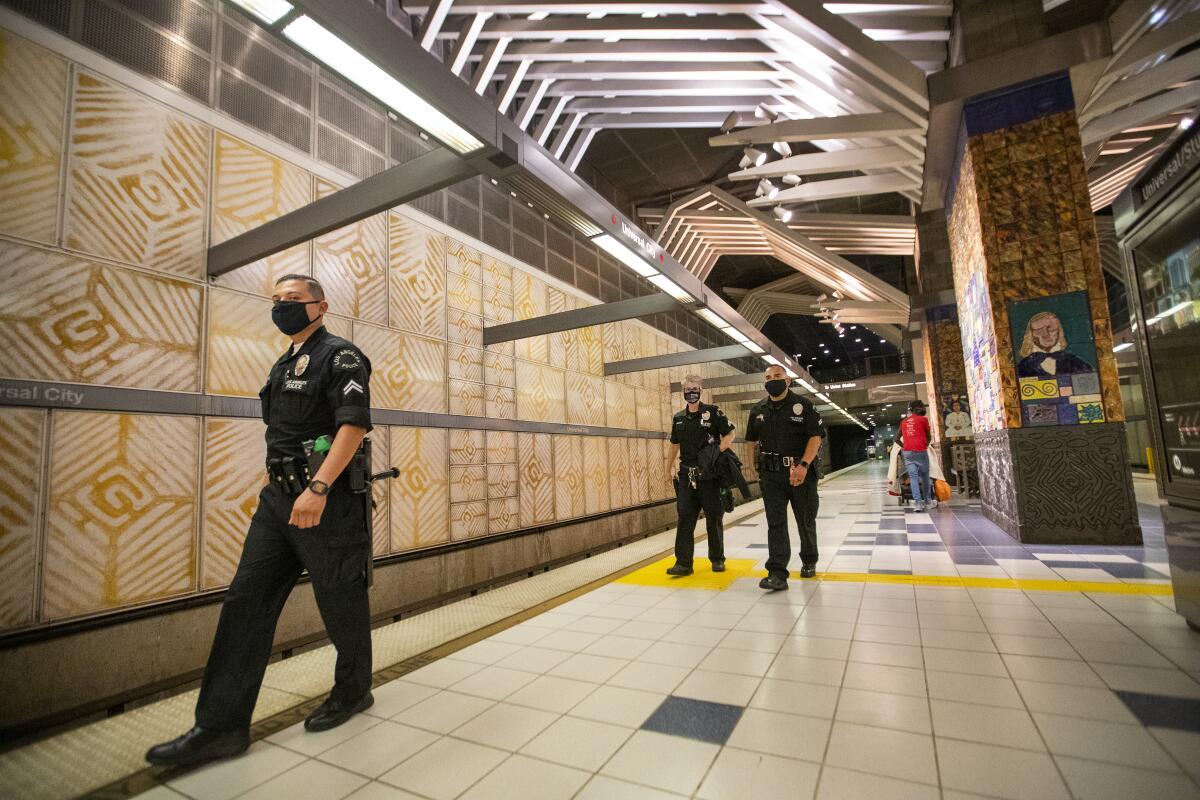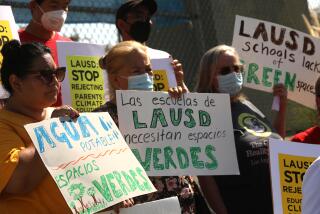Letters to the Editor: How Richard Riordan messed up Metro policing in the 1990s

- Share via
To the editor: As someone who served for 11 years as a Metro governing official, and whose transit advocacy goes back to the predecessor agency, the Southern California Rapid Transit District (RTD), I was around when the first major misstep on safety was made by the agency, leading to where we are today. (“Crime is up on buses and trains. Metro has a plan to make you feel safe,” July 3)
When the RTD-Los Angeles County Transportation Commission merger happened in 1993, Metro inherited the RTD Transit Police, one of the best specialized law enforcement agencies in the country. I and many others believed that it was not only appropriate but necessary for an agency of Metro’s size to have its own police force.
But in 1997, then-L.A. Mayor Riordan, who chaired Metro’s board of directors, tried to push for as much privatization of the agency’s services as he could. One success he had was in disbanding the Transit Police and handing responsibilities to the Los Angeles Police Department. Since then, there has been no completely effective replacement for the former in-house police force, and safety on Metro’s buses and trains has gradually gone downhill.
Putting “ambassadors” on trains may reduce the amount of lesser safety-related incidents, but it will do little (or nothing) to eliminate the more major issues that only a dedicated law enforcement presence is able to.
Kymberleigh Richards, Van Nuys
..
To the editor: It’s all very well that Metro plans to place “ambassadors” on its buses and trains, but that’s not getting to the root of the problem. Metro’s operators need to be better trained to allow them to handle some of the items on the ambassadors’ list.
It’s the “broken windows” theory of policing — in this case applied to the customer service (or lack of same) provided on Metro buses.
Let Metro start making riders feel safer by enforcing the regulations regarding mask wearing. At least one-third of the Metro drivers I’ve encountered during the pandemic have not worn masks.
Protect the lives of your riders, Metro, by making sure that drivers are masked and that there will be consequences when they are reported for not masking up.
Carol Gwenn, Los Angeles
..
To the editor: Metro’s $122-million plan to rescue our public transportation system is a soft-nosed approach of using unarmed “ambassadors” to prevent crime and hooliganism. Unfortunately, this is a hard-nosed problem.
While I support police reform and believe that many of our social ills could better be served through prevention and other applications of soft power, there are places where sensible rules and strict enforcement are necessary. Neither a threatening criminal nor a sleeping homeless person belongs on a train, regardless of the underlying causes. By the time the problem presents on a train or a bus, it is too late for soft solutions.
Thus, if we want public transit to succeed, it must be clean, efficient and affordable. However, the key elements are the safety and security of the passengers.
If this cannot be achieved, Metro is doomed to failure.
Michael Telerant, Los Angeles








